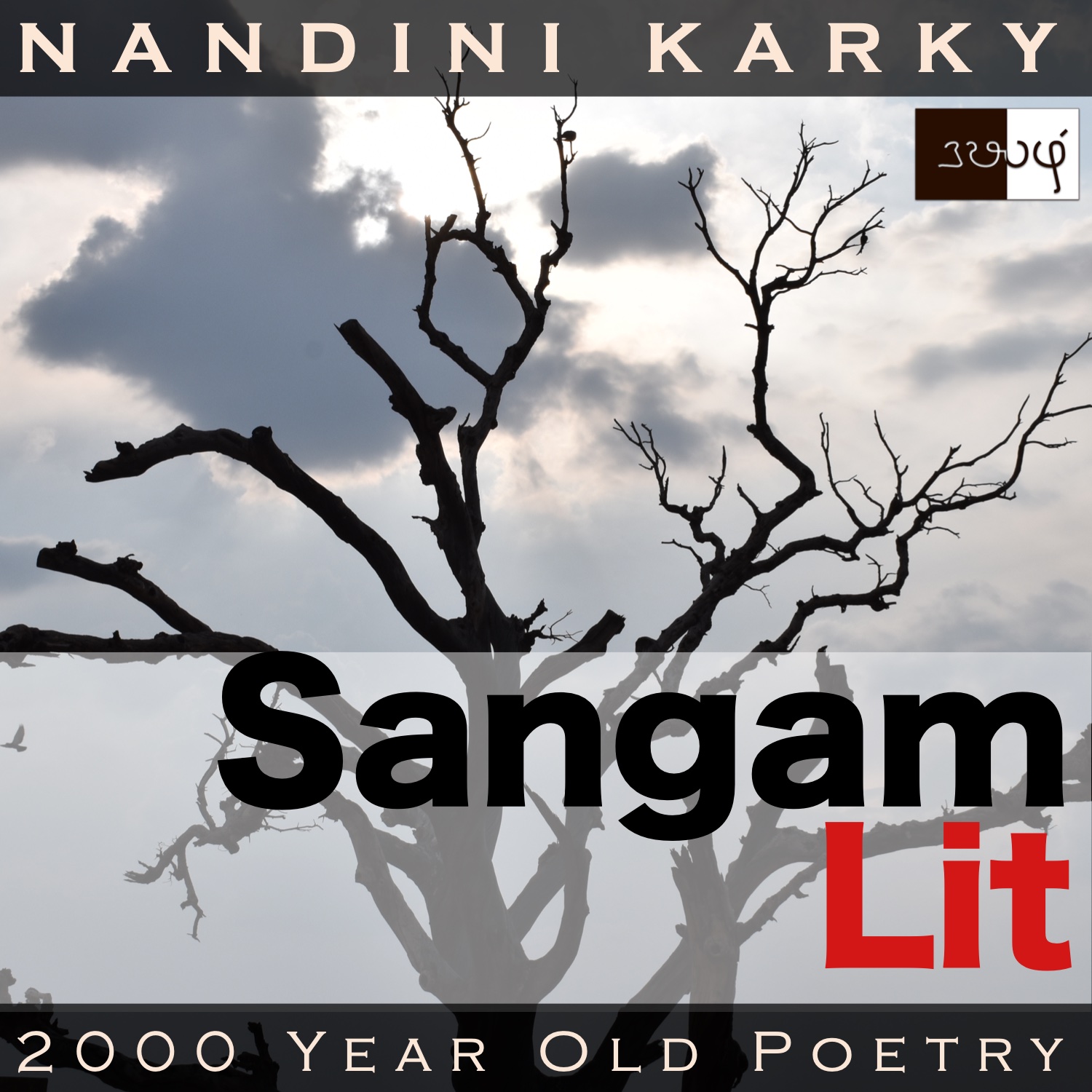Podcast: Play in new window | Download
Subscribe: Apple Podcasts | Spotify | Amazon Music | Android | iHeartRadio | Email | TuneIn | RSS | More

In this episode, we relish a picturesque simile that sketches perfect belief in another, as portrayed in Sangam Literary work, Kurunthogai 388, penned by Avvaiyaar. Set in the drylands of ‘Paalai’, the verse speaks in the voice of the confidante to the man, insisting that the lady could bear the journey through the drylands in the company of the man.
நீர் கால்யாத்த நிரை இதழ்க் குவளை
கோடை ஒற்றினும் வாடாதாகும்;
கவணை அன்ன பூட்டுப் பொருது அசாஅ
உமண் எருத்து ஒழுகைத் தோடு நிரைத்தன்ன
முளி சினை பிளக்கும் முன்பு இன்மையின்,
யானை கைம்மடித்து உயவும்
கானமும் இனிய ஆம், நும்மொடு வரினே.
‘Even the drylands would turn sweet’ is the core thought at the heart of this verse. In contrast to this geographic region, the opening words ‘நீர் கால்யாத்த நிரை இதழ்க் குவளை’ bring to fore ‘a lily standing with its legs in a pool of water’. Next, we see ‘a long row of salt merchants bullock carts’ in ‘உமண் எருத்து ஒழுகைத் தோடு’. Following these domesticated beings, wild ones appear in ‘யானை கைம்மடித்து உயவும்’ meaning ‘the elephant bends its trunk in worry’. Ending with the words ‘நும்மொடு வரினே’ meaning ‘if you are the companion’, the verse welcomes us to learn more.
What could be that miracle that makes those wretched lands turn pleasant? The context reveals that the man and lady were leading a love relationship when circumstances arose such that the only way to protect that relationship was for the lady to elope with the man. Considering this dire situation, the confidante persuades the lady to part away with the man. Later, when she goes to the man and conveys the lady’s approval, the man starts worrying about how the gentle lady would bear the dangers of the drylands. In response to his thoughts, the confidante says, “A lily with luscious petals, standing rooted in water, fades not even when summer winds assail it; Tied by yoke ropes, akin to a slingshot, bulls belonging to salt merchants look on sadly. Akin to the rows of carts pulled by these bulls appears dried branches. Not having the strength to break these branches, an elephant bends its trunk in depair in the scrub jungles. Even those dry spaces become pleasant, if she were to go with you!” With these words, the confidante assures the man that the lady can handle anything that comes her way, if the man were to be with her.
Treasures abound in this tiny verse! Let’s listen to the confidante’s words and unearth these gems. She starts by zooming on to a waterlily, a flower with abundant petals, and points to how even though hot summer winds pounce on this flower, its beauty diminishes not, and why because it stands rooted in water. After showing us this image of sturdy beauty, the confidante goes on to a different scene, one of rows of bullock carts, and here, she delves into the details of the rope that yokes the bulls to the carts and compares that to a slingshot. She then reveals why she has mentioned this scene when she places those rows of bullock carts in parallel to the dried branches on trees. From the dried branches, she moves on to an elephant trying to bend it for food, and how, without strength, it fails to do that, and stands there, deep in worry. Such is the torment of the drylands, the confidante implies. While that may be so, if the lady were to come with you, even this arid place would turn pleasant, she concludes.
And so, it becomes clear that the miraculous condition in which the drylands turns sweet is nothing but the presence of the man. Beautiful is the way the confidante begins with a glimpse of a lily in water, lush, no matter what, and journeys through the harsh drylands, and ends with the assurance that the lady too, would remain as strong as that lily, even in the drylands, if only the man were to be beside her, akin to the water swirling under that flower. A perfect simile to etch trust in the man and to nudge him to move ahead with conviction. With such a voice of faith and positivity to nudge on, a thousand miles in a dreary desert becomes doable even to a doubting heart!




Share your thoughts...